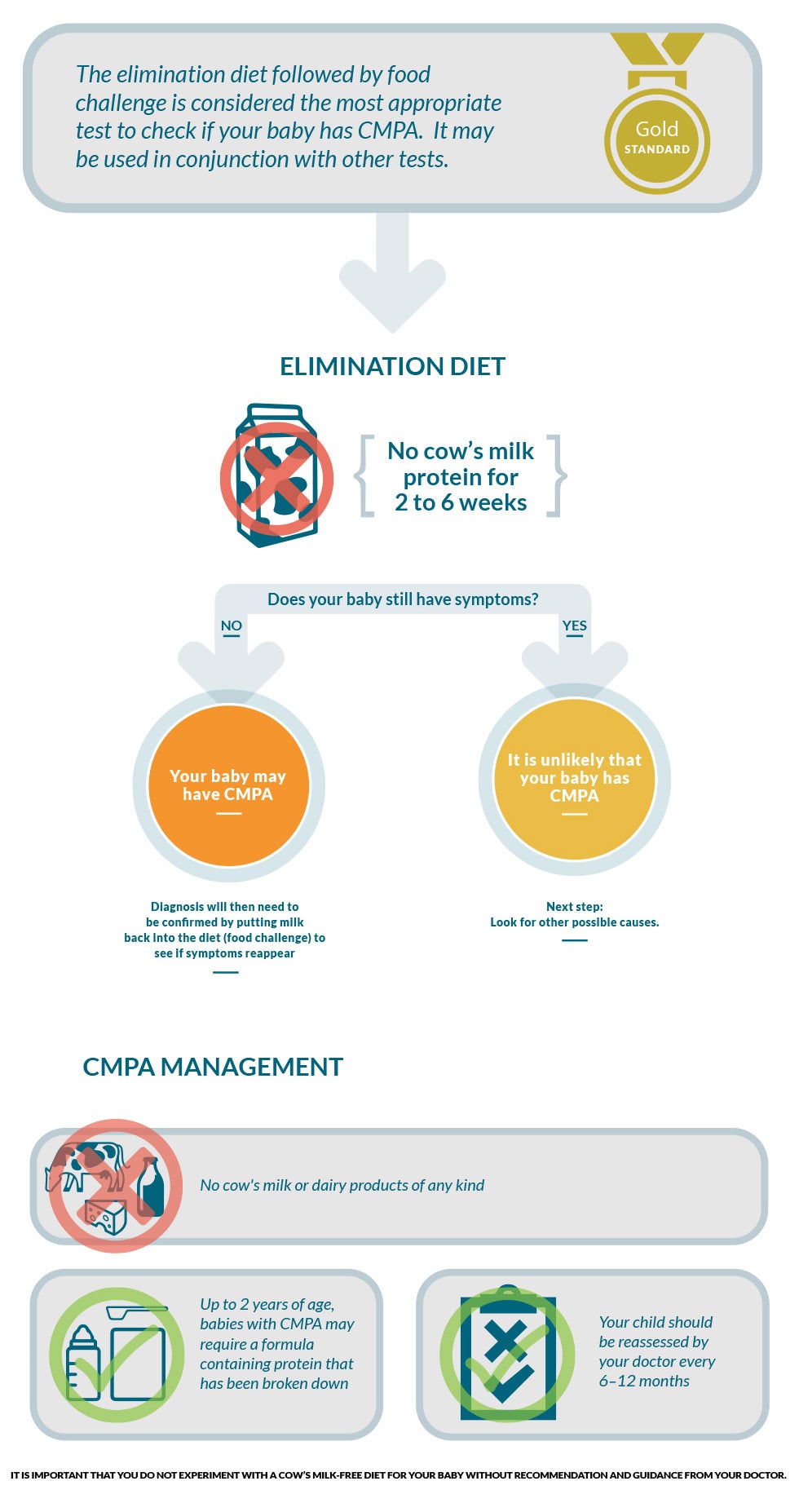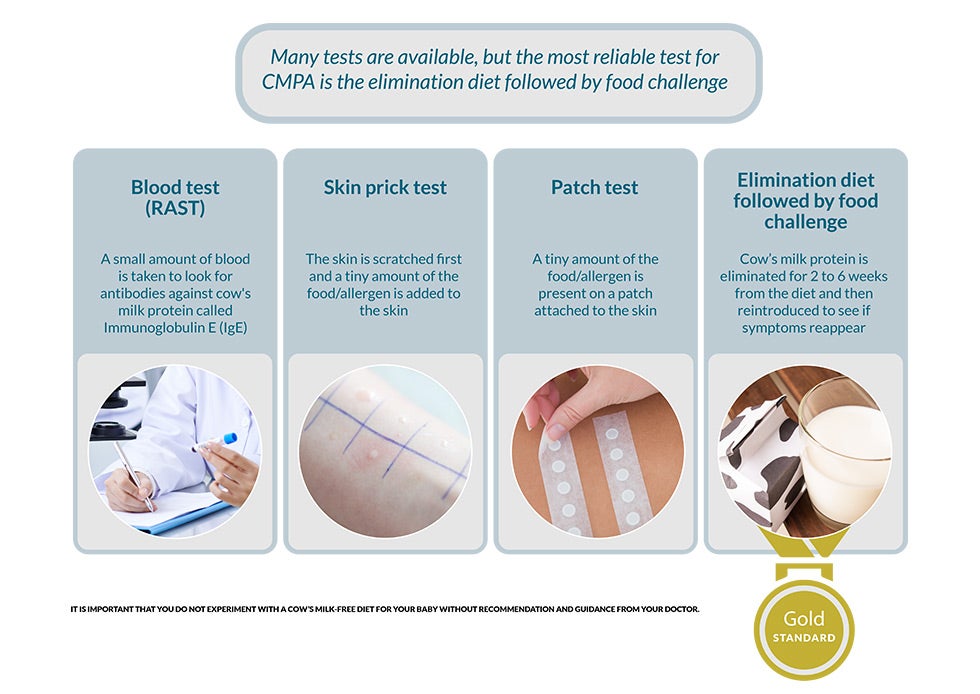Is it cows milk allergy?
The journey to diagnosis of CMPA:
STEP BY STEP


 Step 1
Step 1

Elimination diet and food challenge
Your doctor will first examine your baby and ask about any symptoms you may have noticed. If cow’s milk protein allergy (CMPA), also known as cow’s milk allergy (CMA), is suspected, your doctor may then perform specific allergy tests to confirm the diagnosis. These tests may include a blood test, skin prick test, patch test, or elimination diet followed by food challenge.
It is important that you do not experiment with a cow’s milk-free diet for your baby without recommendation and guidance from your doctor. Based on the age of your baby and the severity of the symptoms, your doctor will recommend the most suitable solution.
The best way for your doctor to confirm or exclude the diagnosis of CMPA is through an elimination diet, which involves eliminating cow’s milk proteins from your baby’s diet, followed by food challenge, in which cow’s milk protein is reintroduced. Although CMPA is rarely observed in breastfed babies, if you are breastfeeding, your doctor will help you eliminate cow’s milk proteins from your diet.
If your baby has an allergic reaction to cow’s milk proteins, you are likely to notice improvements very quickly after starting the elimination diet; most symptoms will disappear within 2 to 4 weeks, and all should completely disappear within 6 weeks. If improvements in symptoms are seen, then your doctor will suggest reintroducing cow’s milk proteins into your baby’s diet in small amounts to check if symptoms reappear to confirm the diagnosis. If avoiding cow’s milk proteins does not help your baby, it is unlikely that your baby has CMPA, and your doctor will investigate other possible causes of the symptoms observed.
If the diagnosis of CMPA is confirmed, the good news is that with the support of your doctor, CMPA can be managed. The key is to seek support from your doctor as early as possible to ensure an early and correct diagnosis. Diagnosis of CMPA should not impact your breastfeeding routine. Mothers are encouraged to continue breastfeeding even when their babies have CMPA. This usually requires qualified dietary counselling to completely exclude all sources of cow’s milk protein from the mother’s diet.
Diagnosis of CMPA should not impact your breastfeeding routine. Mothers are encouraged to continue breastfeeding even when their babies have CMPA. This usually requires qualified dietary counselling to completely exclude all sources of cow’s milk protein from the mother’s diet.
Elimination diet Followed by food challenge

What to do next?
Do you suspect your baby might be allergic to cow’s milk proteins? The most important step is to schedule an appointment with your doctor to ensure a correct diagnosis. The information in this section will help you to prepare for your doctor’s appointment and answer any questions you might have about the diagnosis.
COMPARISON OF TEST METHODS





